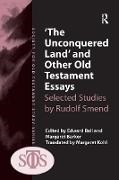Read more
This final book published in the series collects together for the first time in English translation a selection of essays on central themes and texts in Old Testament criticism and exegesis by Rudolf Smend, one of the world's most eminent senior scholars in the field. The essays are marked by penetrating exegetical and critical insight as well as b
List of contents
Contents: Introduction: Rudolf Smend, John Barton; Moses as a historical figure; The Ten Commandments; The Covenant formula; Elements of historical thinking in the Old Testament; The unconquered land; The place of the state in the Old Testament; The Biblical and the historical Elijah’ The Word of Yahweh to Elijah: thoughts on the composition of 1 Kings, 17-19; Amos’s no; 'The end has come': an Amos saying in the priestly code; Eating and drinking: a piece of worldliness in the Old Testament; Lowth in Germany; De Wette and the relationship between historical biblical criticism and philosophical system in the 19th century; Post-critical scriptural interpretation; Trends. Old Testament scholarship in the 20th century: a retrospect; Indexes.
About the author
Edward Ball was Lecturer in the Department of Theology and Religious Studies, University of Nottingham, UK, until he died in January 2011. Margaret Barker is a past president of the Society for Old Testament Study.
Summary
This final book published in the series collects together for the first time in English translation a selection of essays on central themes and texts in Old Testament criticism and exegesis by Rudolf Smend, one of the world's most eminent senior scholars in the field. The essays are marked by penetrating exegetical and critical insight as well as b

